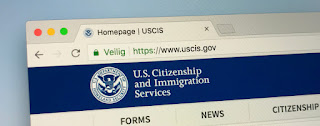Introduction
On October 10, 2018, the Supreme Court of the United States heard oral arguments in Nielsen v. Preap, Docket No. 16-1363. The issue in Preap is whether an alien becomes exempt from mandatory detention under section 236(c) of the Immigration and Nationality Act (INA) if the Department of Homeland Security (DHS) does not take him into immigration custody immediately after his or her release from criminal custody.
Preap arrived at the Supreme Court on the Government's appeal from a decision from the United States Court of Appeals for the Ninth Circuit, which held that the section 236(c) mandatory detention provision applies only to aliens who are detained promptly after their release from custody.
In this article, we will examine the background of Preap, the issues under consideration by the Supreme Court, and the oral arguments. We will update the site with new information if and when the Supreme Court files a decision on the appeal.
Background: Preap v. Johnson, 831 F.3d 1193 (9th Cir. 2016)
On August 16, 2018, the Ninth Circuit published a precedential decision in Preap v. Johnson, 831 F.3d 1193 (9th Cir. 2016) [
PDF version].
Preap arrived at the Ninth Circuit on appeal by the Government from a decision of the United States District Court for the Northern District of California. The case concerned the scope of the mandatory detention provision in section 236(c) of the Immigration and Nationality Act (INA), which requires the Attorney General to take into custody certain aliens pending removal “when the alien is released, without regard to whether the alien is released on parole, supervised release, or probation…” The question was whether the language “when the alien is released” requires the Attorney General to detain the alien immediately upon his or her release from criminal custody.
The three petitioners in Preap had been detained under section 236(c) several years after their release from criminal custody. They filed a class action petition for habeas relief in the Northern District of California. The district court granted their motion for class certification, certifying as a class all “individuals in the state of California who are or will be subjected to mandatory detention under [section 236(c)] and who were not or will not have been taken into custody by the government immediately upon their release from criminal custody for a section [236](c)(1) offense.”
The Ninth Circuit ultimately sided with the district court, dismissing the government's appeal. The Ninth Circuit also read the “when released” language as requiring that the alien must be detained upon his or her release from criminal custody in order for the mandatory detention provision of section 236(c) to apply. The Ninth Circuit declined to decide “how promptly an alien must be brought into immigration custody after being released from criminal custody for the transition to be immediate enough to satisfy the 'when … release' requirement,” instead opting simply to leave in place the district court injunction. Interestingly, the Ninth Circuit's position diverged from that of every circuit court that had considered the issue to that date.
Relevant Statute
The following is the text of section 236 of the INA, the primarily statute at issue in the case [
see here].
Questions Presented on Appeal to the Supreme Court
In agreeing to hear the case on appeal, the Supreme Court is considering the following question [
PDF version]:
Whether a criminal alien becomes exempt from mandatory detention under [section 236(c)] if, after the alien is released from criminal custody, the Department of Homeland Security does not take him into immigration custody immediately.
Oral Arguments before the Supreme Court
In three sections, we will examine some of the highlights from the oral arguments before the Supreme Court in Nielsen v. Preap. First, we will look at the highlights of the oral argument of Zachary D. Tripp, ESQ., assistant to the Solicitor General, representing the Government. Next, we will study the oral arguments of Cecillia D. Wang, ESQ, representing the respondents Preap et. al. Finally, we will briefly look at the rebuttal of the assistant Solicitor General.
Oral Arguments of Petitioner (Government)
The government took the position that the mandatory detention provision of section 236(c) of the INA applies even if there is a gap in time between the alien's release from criminal custody and his immigration detention. As we will see, several justices expressed concerns with the scope of the Government's reading of section 236(c).
Section 236(c) is a mandatory detention provision because (c)(1) provides that an alien “shall be detained” provided the occurrence of certain factors, and (c)(2) provides for only a limited set of circumstances in which the Attorney General may release the alien once detained.
The assistant Solicitor General asserted that the exceptions provided for in section 236(c)(2) plainly did not apply to the respondents in the instant case. Thus, the pertinent question was which aliens were covered by section 236(c)(1). He argued that it applies to any alien who is inadmissible or deportable on one of the specified grounds, regardless of when he or she is ultimately apprehended.
Justice Sonia Sotomayor — who would prove to be one of the most active questioners during the Government's oral arguments — was the first to jump in. Justice Sotomayor asked the Government what effect it gave to the language that the Attorney General shall affect detention “when the alien is released…” The Government interpreted this language as merely “convey[ing] a sense of urgency” to detain the alien rather than a limitation on the Attorney General's mandate to detain the alien.
Justice Sotomayor followed up by questioning the Government about the transition rules, which initially gave the Government two years in which to gather the resources to implement section 236(c) when the statute was first enacted. Justice Sotomayor asked if the Government's position now is correct, why were the transition rules needed at all? The Government stated that its position was that the transition rules were intended to address a lack of bed space at the time the statute was enacted, but that the rules did not imply a limitation on the Government's mandate to detain aliens described in section 236(c). The assistant Solicitor General asserted: “We need to arrest them when they get out. We need to arrest them the next day, the next month, whenever it happens.”
Justice Sotomayor continued her questioning. Next, she asked what the language “when the alien is released” described. The Government argued that the language did not refer to the alien, but rather just states that the statute kicks in after the release. The Government further argued that the language “takes as a given that [the alien has] already been fully described.” Justice Sotomayor appeared cynical of this reading of the statute, stating that the language “describes the person who's subject to this provision.” To counter this line of reasoning, the Government noted the significance — in its view — of the fact that the statute does not specify any time period beyond that “when the alien is released.”
Justices Ruth Bader Ginsburg and Neil Gorsuch questioned the assistant Solicitor General on whether the Government believed that there was any temporal limitation on the amount of time that could elapse from an alien's release from criminal custody to his or her apprehension and placement in immigration detention. The Government contended that there is no temporal limitation, stating that “(c)(1) [is a] continuing obligation” to detain aliens described therein.
The Government next addressed the position of respondents that the arrests in the instant case were occurring under the auspices of section 236(a) rather than section 236(c). Section 236(a) allows for the detention of removable or inadmissible aliens on the warrant of the Attorney General. The Government took the position that this theory was incorrect, but that, even if it were correct, the respondents would still lose, because the difference between section 236(a) and (c) is that (c) mandates detention whereas (a) merely allows it. In response to later questioning from Justice Elena Kagan, the Government asserted that the authority to arrest certain aliens derives from 236(a), but that section 236(c)(1) makes an arrest mandatory in certain cases, including in those limited cases involving aliens who were never previously in custody. In the case of section 236(c)(1)(D), the “when released” language applies for certain aliens who had been or were in criminal custody. Justice Kagan appeared to have issues with the Government's reading, suggesting that, if the only requirement for being covered under the mandatory detention provision was described in section 236(a)(1)(A)-(D), then the prior criminal custody language would be effectively mooted.. The Government, however, endeavored to maintain the distinction between the warrant authority in section 236(a) and the detention mandate for certain aliens — who may also fall under section 236(a) — in section 236(c)(1).
Justice Stephen Breyer then expressed concerns with the idea that an individual could be placed in mandatory immigration detention decades after being released from criminal custody for a minor offense. He referenced his dissent in the recent Jennings v. Rodriguez case, where he took the position that indefinite detention under section 236(c) entails serious constitutional concerns [
see article]. Justice Breyer suggested that if the statute is ambiguous, then there is “a huge constitutional question” if it is read, as the Government advocated, to allow the detention of aliens who had been properly released from criminal custody. The Government disputed Justice Breyer's suggestion that the statute was ambiguous, stating that its reading was “the only plausible reading.” The assistant Solicitor General made clear that the Government contended that section 236(c) applied even if there was a 50 year gap between an alien's being released from criminal custody for a minor offense and his or her being detained by immigration authorities, while noting that the statute does not apply retroactively to arrests before 1998. In response to a follow-up question, the Government stated that the respondents' reading of the statute would deprive the Government of its authority to hold specified aliens without bail hearings.
In response to questions from Justice Samuel Alito and Justice Kagan about the scope of the certified class in the instant case, the assistant Solicitor General stated that there are no statistics on the number of individuals covered at the present or estimates on how many individuals may join the class in the future. He argued that the injunction impaired the DHS's ability to do its job, noting that it often takes time for the DHS to identify when an alien has been convicted of a crime or has otherwise committed conduct that would render him or her subject to mandatory detention.
Justice Breyer asked the Government what would constitute a reasonable time between release from criminal custody and immigration arrest. He noted the difference between a situation involving an individual who was living peacefully in the community after release and a person who was “hiding in the mountains” from immigration enforcement. The Government argued that section 236(c)(1) has no time limit at all, thus mooting the distinction. He added that Congress could have added a statute of limitations, but for whatever reason opted not to. The Government answered in the negative when asked by Justice Kagan whether there is a constitutional claim for aliens in some of the more sympathetic cases described by Justice Breyer.
Justice Breyer asked the assistant Solicitor General what issue the government would have, assuming that there were constitutional concerns and that the statute was ambiguous, with merely detaining the aliens under section 236(a) and affording them bond hearings. The Government responded that the statute provides for detaining certain aliens without bond hearings in order to preclude any chance that they will be released and either commit further crimes or disappear.
In response to a question from Justice Alito, the Government took the position that if the Supreme Court were to rule in its favor, individual aliens could sue for habeas relief instead of class action relief, describing this as a “safety valve” that is “much more faithful to what Congress was trying to accomplish…” He added, in response to a question from Justice Kagan, that the alien could seek relief notwithstanding the jurisdictional provision in section 236(e).
Oral Arguments of the Respondents
The attorney for the respondents began by arguing that the Government's position was contrary to the language of section 236(c) in at least the following three ways: (1) It negated Congress' directive in the statute to reserve mandatory detention resources only for aliens who would otherwise be released into the community (as opposed to those who already had been); (2) It is not true that Congress wanted to detain and deport all criminal aliens; and (3) Congress could have left out the detained “when the alien is released” language if it had intended for the statute to apply to all aliens otherwise described by section 236(c)(1). Instead, the respondents argued that section 236(c) exists as a limited exception to the general detention authority in section 236(a). They also adopted several of the concerns implied in critical questions directed to the government by the Justices, including that the Government's reading would arguably render the transition period rules from 1998 superfluous.
Justice Ginsburg was the first to question respondents' counsel, asking whether it was anomalous that, under her reading, two aliens described to section 236(c)(1)(A)-(D) would be treated differently if one were to be apprehended immediately upon release from criminal custody but not another because . the one immediately apprehended would be subject to mandatory detention without bail hearings whereas the other would be eligible for bail hearings under section 236(a). The respondents took the position that this anomaly is what the statute provides, and the Supreme Court determined that the mandatory detention provision was constititutional in Damore v. Kim.
Next, Justice Alito pressed the respondents' counsel on the meaning of “when” in “when released,” asking if it was the respondents' position that “when” means “immediately,” for example ,”as soon as the person … walks out of the door of the prison or the jail.” The respondents responded that the Ninth Circuit was correct in holding that the alien must be detained with “a reasonable degree of immediacy” for section 236(c) to apply.
Justice Alito continued his questioning, asking what “a reasonable degree of immediacy” meant. He asked, for example, whether it meant that the government was required to determine within a short period of time — e.g., 48 hours — whether an alien being released from custody in California (where the district court ruling is in effect) is subject to section 236(c) detention. The justice noted that California would not have immediately informed the federal government when it had released from criminal custody an alien who may be described in section 236(a)(1)(A)-(D). The respondents asserted that Congress had addressed this problem with section 287(g), which allowed the federal government to enter into immigration enforcement cooperation agreements with local authorities. Justice Alito asked her if it was her position that local authorities were providing the pertinent information on criminal aliens to the DHS, to which respondents' counsel replied that this was Congress' idea in 1996. She added that, for the most part, local jurisdictions do cooperate with the federal government. The respondents' counsel added that ,regardless of how facts on the ground may have changed since 1996, the pertinent concern is what Congress meant when it wrote the mandatory detention provision and related immigration statutes.
Chief Justice John Roberts returned to the question of what a “reasonable degree of immediacy” means. He suggested that the term did not make sense, for “[i]f it's an hour later, it's not immediate.” He asked whether the respondents meant to argue for a “reasonable degree of immediacy,” in other words, “a very short time,” or a “reasonable time,” which would depend on the resources that were available to the DHS. After further back and forth, the respondents counsel stated that it was her position that “the same day would be fine,” but that 48 hours between release from criminal custody and immigration apprehension would not be within the scope of section 236(c).
In response to questioning from Justice Sotomayor, the respondents' counsel took the position that the pertinent issue was not whether the government put in a reasonable effort to detain the alien on the same day of his or her release from custody, but whether it actually did so. Thus, as a consequence, if the alien were to elude capture by immigration authorities on that day despite their best efforts, the alien would not be subject to section 236(c) upon his or her eventual apprehension by DHS.
Justice Gorsuch then asked a grammar question. Justice Gorsuch noted that the noun in section 236(c)(1) is the “alien,” and then added that “[a]dverbs don't usually modify nouns,” but rather verbs. In the instant statute, he explained that the verbal phrase is “shall take into custody.” He asked why it was that the adverbial phrase “when the alien is released” should not be more naturally read as modifying “shall take into custody” rather than the “alien.” Under this reading, when the alien is released would be when the government's duty to take the alien into custody commences rather than a restriction on the class of aliens affected by the mandatory detention provision.
Counsel for the respondents' argued that the structure of the provision implied that the adverbial phrase modified aliens rather than “shall take into custody” and that adverbs can, in some instances similar to the instant statute, modify nouns. To the latter point, the respondent's counsel provided a hypothetical example involving harvesting grapes, but Justice Gorsuch did not appear to find the example persuasive. She ultimately reaffirmed her position from briefing that what the Government described as an adverbial phrase in the statute could be rephrased as an adjective, and that it was describing the alien rather than modifying “shall take into custody.”
Justice Brett Kavanaugh then noted that Congress would have known at the time it wrote the statute that immigration apprehension would not be immediate in many cases. He next noted that Congress nevertheless did not put a time limit in the statute. In light of this, he articulated reluctance about “superimposing a time limit into the statute” when he read Congress as having declined to do so. The respondents' counsel disputed that she was asking the Court to superimpose a time limit, but he interjected by noting that Congress had not included her proposed limit of 24 hours or any other limit such as the “reasonable time” suggested by Justice Breyer. The respondents took the position that “when” as used in section 236(c) means “when” in the common sense, as suggested by Justice Breyer.
Justice Kavanaugh then questioned the respondents' argument that the Government had little to lose were their broad view of section 236(c) to be narrowed. The respondents' counsel argued that 236(c) is merely an exception to 236(a), and that aliens who do not fall under section 236(c) can be detained under section 236(a) with bail hearings. Justice Kavanaugh noted, however, that the creation of section 236(c) implied that Congress believed that these hearings were detrimental with respect to certain aliens. The respondents' counsel noted that a bipartisan group of former INS and DHS general counsels submitted an amicus brief supporting the respondents' position that section 236(a) detention is not meaningfully more burdensome for the government than section 236(c).
Chief Justice Roberts noted that four circuits and an equally divided First Circuit disagreed with the position of the respondents and the Ninth Circuit. The respondents' counsel explained why it was her opinion that the Ninth Circuit was correct, and she added that in one of the five contrary decisions the Fourth Circuit misapplied BIA precedent on the issue.
Justice Alito then acknowledged that he could see compelling equities in cases where an alien was free for a number of years before being detained by DHS, but that Congress had taken the position that this class of aliens was dangerous and not to be trusted. Bearing that in mind, he asked why it would make sense for Congress to view a case where an alien was out of prison for a week differently than that of an alien who was detained on the day of his or her release from criminal custody.
Citing to the Supreme Court decision in Zavydas v. Davis [
see article where we discuss case in some detail] where the Court held that certain aliens subject to detention are entitled to bail hearings after six months, Justice Breyer asked whether the respondents would consider it an acceptable solution if a six month limit was imposed on section 236(c) in the instant case. The respondents took the position, again, that six months was too long, and that a bright line rule should be consistent with the narrower statutory language.
Rebuttal (Government)
On rebuttal, the Government fielded questions from Justices Sotomayor and Kavanaugh.
Justice Sotomayor pressed the Government attorney on two points, expressing skepticism about the Government's argument that the “when released” language does not refer to the alien but instead connotes a sense of urgency to detain the alien. In response to the latter point, the Government took the position that it is better late than never to detain an alien described in section 236(c), and that delays in effecting detention do not negate the government's responsibility to do so.
Justice Kavanaugh then asked the assistant Solicitor General whether he had a view on what a reasonable length of time would be to apprehend an alien after his or her release from criminal custody were the Court to rule against the Government and adopt a bright line rule. Noting the difficulty in tracking down aliens once they are released into custody, the Government declined to suggest a period.
Finally, Justice Sotomayor noted that many aliens described in section 236(c)(1)(A)-(D) are released from criminal custody and do not commit more crimes or obtain some form of relief from removal. She asked whether the Court could constitutionally ignore that going forward. The Government responded by arguing that this was not the issue before in the case, and rather that it was “a statutory interpretation case.”
Conclusion
In general, one cannot draw firm conclusions from oral arguments as to how the Supreme Court will ultimately resolve a case. In the instant oral arguments, we saw several Justices — notably Justice Gorsuch — pose tough questions to both the Government and the respondents. In addition, even if the Court were to rule in favor of the respondents, it is unclear from the oral arguments on which grounds it would do so and what remedy it would provide.
All we can say for certain for the time being is that the Court's eventual decision in Preap will be its second significant detention decision in the last year, following Jennings v. Rodriguez [
see article]. We will update the site with more information when the decision is published.
To learn more about immigration detention, please see our growing selection of articles on the issue [
see category]. For related topics, please see our website's sections on criminal aliens [
see category] and removal and deportation defense [
see category].
Please visit the
nyc immigration lawyers website for further information. The Law Offices of Grinberg & Segal, PLLC focuses vast segment of its practice on immigration law. This steadfast dedication has resulted in thousands of immigrants throughout the United States.












